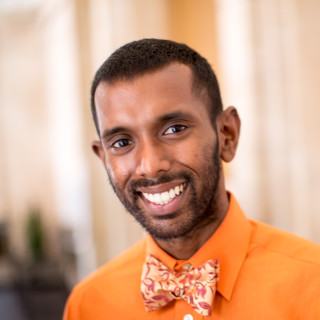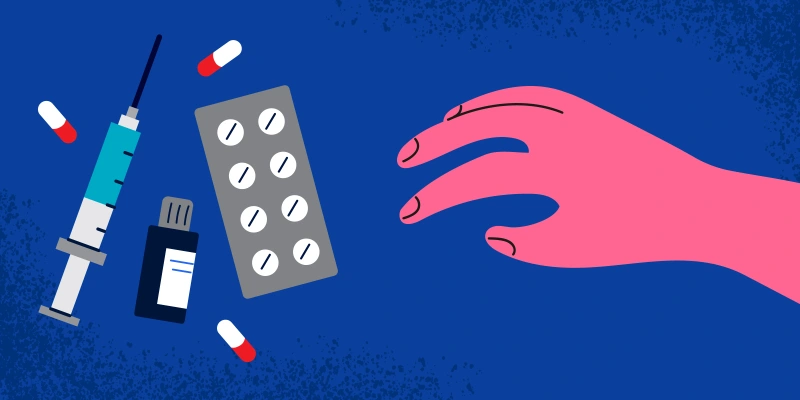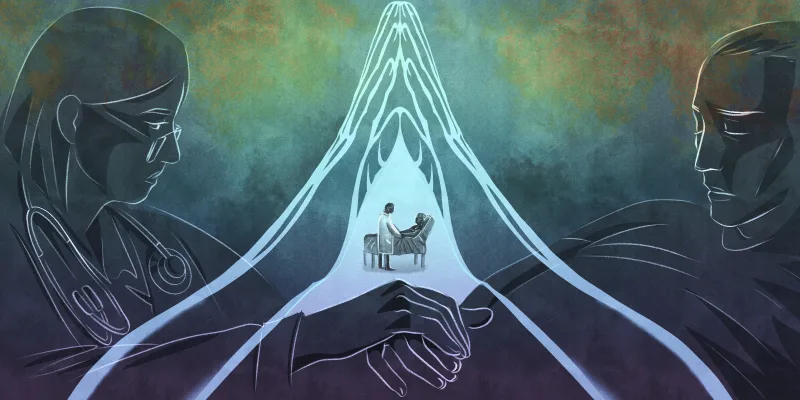
It is five in the morning. I am scrolling through my phone when I glimpse an email from a college classmate announcing a funeral. I open it to find the picture of a familiar face staring at me. Noah, my former college roommate, is dead.
I last talked to Noah when he graduated from medical school. After a stressful application process, he was happy to match into a prestigious surgical residency program to continue his training to become a surgeon. Yet five months into his training, he is dead.
A week later, I am sitting at his funeral service. It is an open casket. Although years have passed since we last met, his face remains un-aged. As I hear eulogies from friends and loved ones, one word is being spoken repeatedly and purposefully: suicide. Noah shot himself.
Every year approximately 400 physicians kill themselves, leaving more than half a million patients without their preferred doctor. It takes two to three graduating medical school classes to replace these physicians. For each of these deaths, the medical community pauses to acknowledge these deaths as an individual failure. However, it is becoming more difficult to attribute suicide solely to the individual when the estimated physician suicide rate is climbing to four times that of the general population.
The process of becoming a doctor changes people, and often it is a deeply rewarding change. But for the increasing many, somewhere between entering medical school and the busy ritual of daily doctoring, their happiness is altered for the worse. It is not because physicians dislike their jobs. Interacting with and helping patients are the highlights of a physician’s day. In fact, one of the largest motivating factors to enter medicine is a deep desire to help another. It is still the most widely cited reason in medical school application essays. Yet very few outside of medicine understand the complexity of medical training and even fewer discuss it.
Going through medical school is like jumping into an ocean and being expected to drink and retain all the water. The vastness of medical information needing to be digested can cause many to psychologically burst. Worse yet, it is never ending. Medical students are constantly evaluated on how well they retain and apply this information to their patients from a multitude of evaluators. In the process of shifting through evaluations, medical students come to realize the unspoken expectation of perfection. To get the best evaluation and thus climb the academic ladder, one should execute the expected duty with precision, even if it is their first attempt. Rarely are people expected to be perfect on their first attempt in other scenarios, yet in medicine it is what most strive for, and thus it has become the norm. Deviating from it is looked at as a failure.
After medical school graduation, the newly-minted physicians undergo the same culture of high expectations, only with greater responsibilities. Most physicians continue to excel because they are still motivated by their desire to heal another, but this level of work excellence is accomplished at the expense of other aspects of life. Physicians quickly learn how to return a message regarding a patient and slowly forget how to return calls from their significant other, family and friends. In the hectic pace of a physician’s life, the cycle of work and sleep becomes the most familiar part of existence.
Betrayal of a life outside of the hospital takes an emotional toll. Physicians face high rates of depression, with one study estimating depression prevalence in resident physicians to be as high as 30%. Physicians also face 10–20% higher divorce rates than the general public with many more dealing with marital and family problems. Historically, when a physician speaks up about mental health issues or about the disintegration of his/her personal lives, the medical community is quick to regard it as a personal weakness. And thus, others who might feel similarly censor their own need for help.
However, attention to physician well-being has started to improve. Most medical schools now offer some form of student well-being program. Since 2003, the Accreditation Council for Graduate Medical Education (ACGME) has imposed a maximum 80 hour work week for resident physicians, although whether there is strict adherence to this rule is debated in medicine. An international conference on physician health now takes place every two years to discuss these issues. Yet, these initiatives are simply the beginning.
In order to successfully decrease physician suicides, the culture of medicine needs to restructure itself to be more open to discussing and responding to issues relating to physician well-being. There needs to be a deep commitment from the medical community to take care of their own, and the public must be willing to let the medical community make that a priority. If not, increasing physician suicides at a time when the country is struggling to deal with a national physician shortage will quickly become a public health crisis.
It is hard not to imagine what could have been done to prevent Noah’s death. But the epidemic of physician suicides has made it clear that we can no longer afford to passively facilitate bullet wounds into those who devote themselves to removing bullet shells out of others.
This piece was previously published in the Baltimore Sun and is republished here with permission.
Jerome Chelliah, MD MPH is is an obstetrician-gynecologist resident at Kaiser Permanente Medical Center in Santa Clara. He completed medical school at the University of California, San Francisco (UCSF), and he was a Sommer Scholar at the Johns Hopkins Bloomberg School, where he studied health care management and the health of populations.






